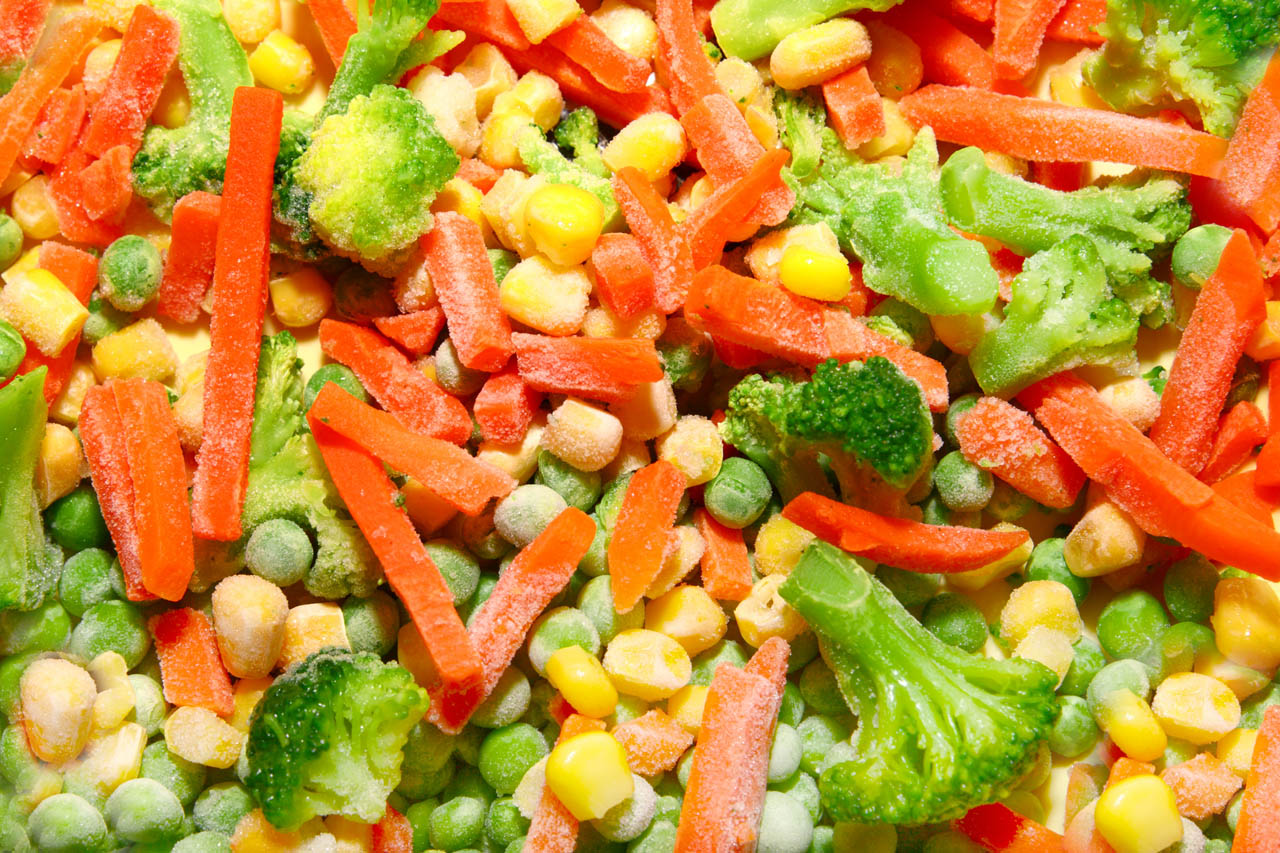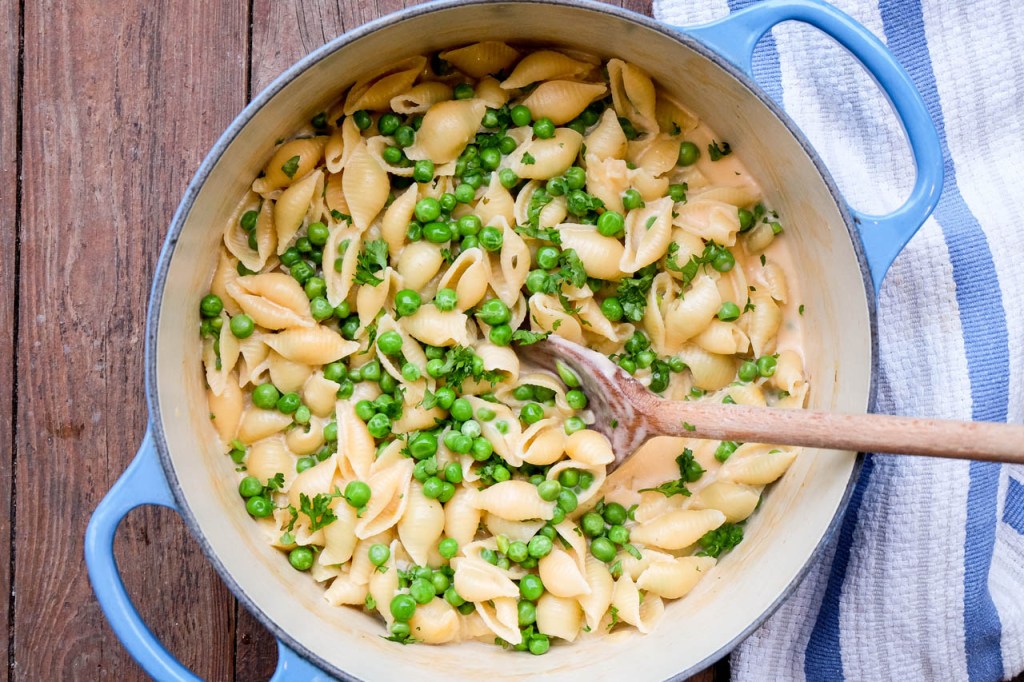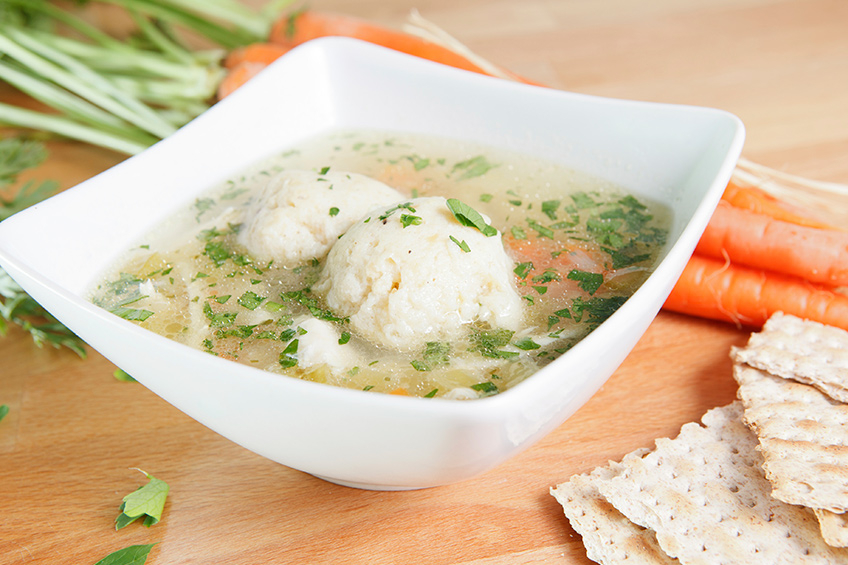
Many of us dream of a counter overflowing with bright, fresh-from-the-earth produce waiting to be cooked in our rustic-chic kitchen. But, the reality of cooking with fresh vegetables doesn’t always live up to our cottage core fantasies — particularly when it’s the middle of winter and the spring growing season is barely even a glimmer in Mother Nature’s eye.
Fresh produce can be expensive, limited in certain seasons and often spoils faster than we can cook it. With their reputation for being bland and processed, however, frozen veggies may not feel like an inspiring alternative. But don’t dismiss these freezer heroes just yet – frozen veggies bring more to the table (literally) than you might think, and, with the right approach, they can be used to create meals that are anything but blah and boring. Read on to explore our guide on ways to use frozen vegetables.
Related: How to Know When You Should Buy Fresh vs. Frozen

Benefits of buying frozen vegetables
Freshness
While fresh veggies might instinctively seem more wholesome than their frozen counterparts, there’s more to the distinction than meets the eye. Commercially frozen fruits and veggies are typically harvested at the peak of their ripeness and flash-frozen immediately, which preserves their just-picked levels of minerals and vitamins.
By contrast, unless you’re picking your veggies straight from your own garden and preparing them the same day, the fresh veggies you typically find at your local grocery store have already begun to decline in nutritional value. As produce ages, some of its vitamins and minerals leach out. After being picked, your grocery store cauliflower was likely in transit for a few days, spent some time hanging out in the produce aisle, and then will potentially sit in your fridge for a day or two before you use it.
Convenience and affordability
There’s no denying that frozen veggies, which often come pre-sliced, diced or otherwise chopped, are handy for those busy nights. Despite being so convenient, however, they’re typically cheaper than fresh veggies, which feels more important than ever at a time when most of us are looking for ways to cut costs at the grocery store.
Shelf life
In addition to offering similar nutritional benefits to fresh vegetables, the long shelf life of frozen veggies can make it easier to reduce your food waste. Frozen spinach can last for up to a year in your freezer, compared to fresh spinach, which won’t last for much more than a week. Frozen vegetables also give you the flexibility to toss a handful of snap peas into your stir-fry one night without committing to using up a whole bunch of the fresh stuff before it goes bad.
Related: This Clever Trick Will Prevent Freezer Burn for Good (And Major Food Waste)

How to make frozen vegetables taste good
Timing is everything
There’s no denying that the freezing process causes minor changes in the texture and taste of your vegetables. But that doesn’t mean cooking with frozen veggies dooms you to suffering through limp, second-rate meals. When cooking with frozen vegetables, keep in mind that they cook faster than fresh, so add them to your recipe a little later to avoid a mushy mess.
Let other ingredients be the star
Frozen vegetables typically do better as a supporting player in your culinary theatre than as the star of your show. So, you may want to opt for fresh veggies when cooking a broccoli steak, for example; but frozen broccoli could be a great addition to a soup, stew, pasta or casserole. Frozen veggies are also excellent in curries, omelets or frittatas, as well as for pizza toppings.
Related: 5 Tips to Prevent Freezer Burn
Extra seasoning goes a long way
While the crisp spring asparagus you pick up at a local farmers’ market might taste perfect when roasted with nothing more than oil, salt and pepper, extra seasoning can make a big difference in giving frozen vegetables a boost.
Butter and cheese make pretty much everything better and this culinary wisdom holds true for frozen veggies. Acidic ingredients like vinegar or lemon can give your frozen veggies a little zing, while herbs and spices bring new dimensions to their flavour.
Experiment with cooking methods
When it comes to cooking methods, there’s no reason not to get as creative as you would with fresh vegetables. Stay clear of boiling, which not only tends to make your veggies soggy but can also cause some of their nutrients to leach out into the cooking water.
Roasting or pan-frying your veggies at a high heat can help them crisp up nicely. Air-frying is another great option. It gives them a texture so satisfying that it might just turn you into a frozen veggie enthusiast.
Read more: Our Favourite Recipes Featuring Local Fruit From Across Canada
